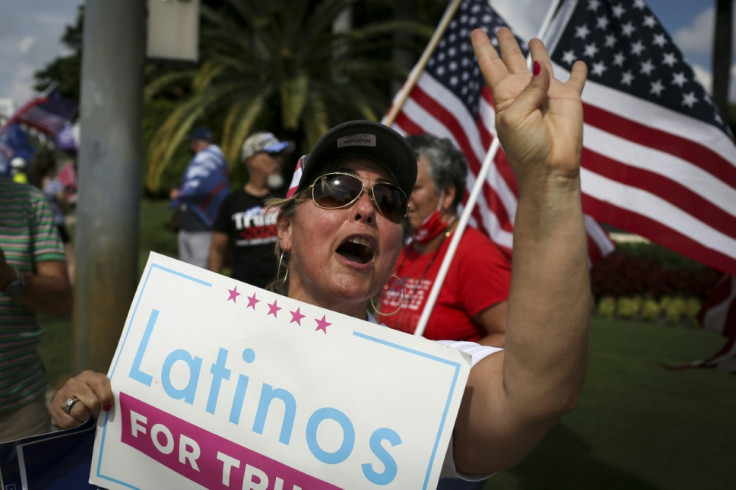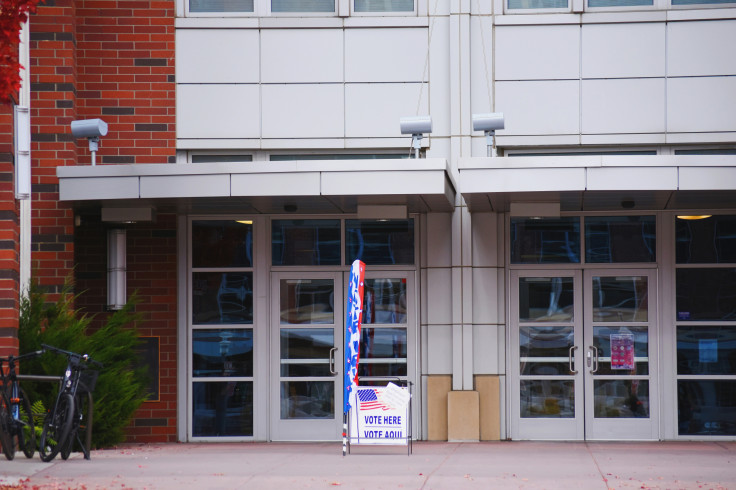
NEW YORK CITY - As the presidential campaign continues to heat up, Republicans and Democrats alike are increasingly using digital platforms to get their message across and reach a wider audience.
As Latinos make up the biggest minority group in the country, news outlets are simultaneously trying to counterattack campaigns by targeting specific trends— misinformation and disinformation.
As voters are set to take part in the first presidential elections since the rise of generative AI, specialist expect tools like Midjourney, Dall-E, ChatGPT and more to be at the center of misinformation campaigns, a new report by the Reuters Institute and the University of Oxford says.
However, more traditional forms of misinformation will be present as well. They tend to be based on true information that's spun, twisted, recontextualized or reworked with the goal of reinforcing party narratives, the report added.
This election season, as an estimated 36.2 million of Latinos are eligible to vote, up from 32.3 million in 2020, this demographic is likely to be increasingly targeted with campaigns and some specific type of misinformation, particularly in battleground states such as Florida, Arizona, Nevada and Georgia, the study reports.
Here's what you need to know about the misinformation targeting of Latinos, according to the report.
How Latinos are Targeted
Despite many categorizing U.S. Latinos as monolithic voting group, this is far from being the case said Tomoa Calzadilla, editor-in-chief of Factchequeado, a digital fact-checking outlet focusing on disinformation in Spanish in the United States.
Hence, dis- and misinformation campaigns often target different groups and nationalities with messages that will resonate with them.
"I live here in a community in Miami with many Venezuelans and many Cubans who are afraid of dictatorships and socialism. Some conspiracy groups know this and then they use it to scare people," Calzadilla explained.
A YouTube campaign ad that the Trump campaign created in 2020, for instance, falsely claimed that the Venezuelan government supported Joe Biden. According to nonprofit newsroom ProPublica, the video was watched more than 100,000 times in Florida in the nine days leading up to the 2020 presidential election. Truth is that Venezuelan president Nicolas Maduro didn't endorse any of the candidates, but some voters may have believed what they saw.
Other narratives that target Latinos usually have to do with inflation (aiming at Argentinians and Venezuelans), abortion and reproductive rights (most Latin Americans are Catholic), and the shadow of electoral fraud or rigged elections (as seen in the past in Honduras, Nicaragua, Ecuador and more).
Who Spreads These False Narratives?
Most misinformation campaigns can be tracked down to the candidates' campaigns themselves, Reuters Institute and the University of Oxford reported. However, it is not so cut and dry in many other occasions.
When it comes to the elections, Republicans and Democrats have different tactics aimed at manipulating public opinion.
Democrats' general strategy involves the use of coordinated groups of political influencers who are paid to riff off a script without any disclosures, while Republicans are more willing to use botnets and disinformation to sway people's perspectives, said Sam Woolley, directors of the propaganda research lab at the Center for Media Engagement at the University of Texas.

Some campaigns also often engage in what is called "identity laundering," with shadowy marketing firms often purposely created to just work during once election in one state for a specific campaign.
"It is important for people to understand that it's often intermediaries and consulting groups that are doing this work," Woolley explains. "The United States still has several loopholes that allow campaigns to hire contractors, but then the contractors can hire subcontractors that can avoid having to list themselves as having worked for a political campaign."
What To Expect From the 2024 Elections
From AI-generated images to robocalls using AI to mimic a politician's voice, these kind of tools are expected to have a big presence in the upcoming elections.
"We are concerned about that because now we are facing the first electoral process in the midst of the boom of generative artificial intelligence and I have started to see how electoral campaigns are using AI to deceive people without any transparency on the technology they use," Calzadilla said.
As the 2024 cycle ramps up, media organizations are preparing for what is coming ahead.
Telemundo, for instance, is hiring additional fact-checkers as well as establishing strategic alliances with other media organizations. They have partnered with media literacy outfit MediaWise to produce a series of educational videos with Telemundo's news anchors to help people identify false information.
"Many studies show that social media platforms, at least here in the US, do the same thorough job in cleaning up misinformation in Spanish as they do in English," Ronny Rojas, who leads Tverifica, Telemundo's fact-checking initiative, says. "So that makes Latinos especially vulnerable to disinformation."
Read the full report here.
© 2025 Latin Times. All rights reserved. Do not reproduce without permission.





